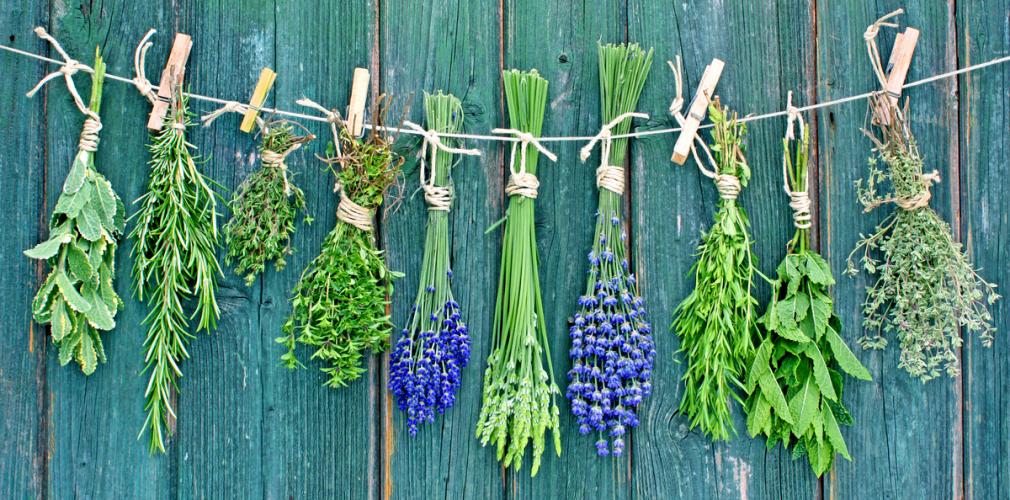Outdoor cannabis grows often suffer from insect attacks that could potentially hamper their development. This is a completely natural thing because the environment harbours great biological diversity, necessary to the balance of the Earth. Sometimes, though, the solution is in nature itself. We've put together six of the most effective natural insect repellents.

Citronella and basil
Citronella grass is known for its nice and intense scent, rich in limonene (Δ-Limonene), a terpene also found in lemon and other citrus fruit.
What's most important, citronella is a great repellent that effectively drives away flies, mosquitoes, aphids and many other flying insects that could damage our plants. But not just that. It can also prevent other animals such as cats from getting too close and adversely affecting their development.
Therefore, citronella is not only perfect for making delicious herbal infusions, but it can help keep certain pests at bay.
Basil has similar properties and can be used for the same purpose. It gives any dish a fascinating fragrance and it protects plants from the attack of insects and animals.
Lavender
Lavender is a highly popular aromatic herb that belongs to the plant family of Lamiaceae (mint family). It yields mauve or violet spiky flowers whose powerful aroma effectively deters many species of flying insects.
Lavender is a very attractive and fragrant perennial plant with a major insectifuge action that can also be used for treating severe nerve disorders, sleep problems, as well as joint and rheumatic pain.
Lemon balm
This one too is a perennial herb from the mint family, on this occasion with slightly rounded leaves similar to those of indica-dominant strains, a light green colouring indoors and a mix of darker hues outdoors. Its size could vary from 30 to 80 cm.
Flowers might be white or pale yellow, with a subtle yet appetizing lemony scent. Limonene acts as a natural repellent of ants, mosquitoes, and many other insects. If used in bouquets, it's way more effective, as its aroma is more concentrated and so is its action.
It is widely used in teas as a sleep aid as well as to reduce anxiety and pain. Natural protector of fruit trees, vegetable products in general and ornamental plants.

Rosemary
Another culinary star of the mint family (Lamiaceae). Its action against slugs, snails and other soft-bodied invertebrates is simply amazing. For better results, we recommend choosing a dark place to grow your rosemary plants, preferably in spring or autumn.
Moderate humidity levels are preferred, so make sure you keep soil and environmental moisture levels into account when planning your watering schedule.
Mint
Mint is also loved for its overwhelming and pleasant scent. The active substance found in this refreshing herb, known as menthol, is responsible for its powerful repelling properties.
Menthol is a natural full-spectrum repellent. It effectively drives away a wide variety of parasites like spiders, bedbugs, aphids or mosquitoes. Mint is indeed one of the best natural repellents on Earth capable of protecting the entire growing space from the attack of insects.
Its leaves are widely used in delicious tea preparations. There are many different varieties of mint but the most effective repellents are the squaw mint and the spearmint.
To prevent the massive occurrence of flies and ants, and to obtain the best possible results, it's best to use fresh bouquets.





As well as deterring insects, Basil can also stimulate natural plant oil production; however, as I found out too late one year, planting too much Basil and too close to my Babies, it can also cause your flowers to become "Basilfied". Unless you enjoy Basil flavoured Pot, I would recommend for outdoors, no more than one Basil plant per 5 Babies and no closer than 1.5 metre / 4 feet from your patch. I imagine indoors would be a no-no for Basil due to the "closed system" type of growing space, unless, of course, you enjoy Basil flavoured Pot! I have had no such problems with Mint, but would be cautious of planting Rosemary or Lavender any closer or any denser than my recommendations for the Basil plants either, as these plants along with Lemon Balm and Mint too, can also stimulate natural plant oil production, but they may also infuse their flavours and aromas into your special flowers if planted too densely and too close to your Babies. Good luck and Happy growing!